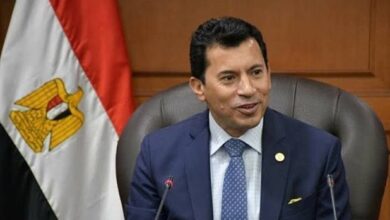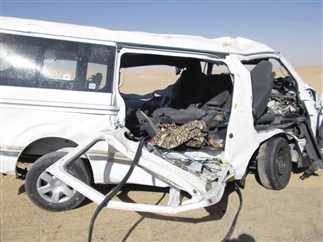
Egypt’s new comprehensive health insurance system launched on Tuesday in five governorates: Luxor, Ismailia, Aswan, Suez and South Sinai.
The health care units and family medicine centers witnessed a high turnout of citizens, seeking to register in the system and inquire about the services provided.
Egypt’s Minister of Health and Population Hala Zayed instructed the health sector’s employees to complete their work efficiently, in order to ensure quality service provided towards citizens. She stressed that Egypt is witnessing a new phase in health care services, in accordance with international standards, that ensures the quality and sustainability of those services.
The director of the comprehensive health insurance system project, Ahmed al-Sobky, said that the registration process will be conducted through the nearest health care units or centers, requiring a national ID card or a copy of them, along with those of the spouse and children, or birth certificates for those under 18.
The comprehensive health insurance system started in the pilot phase in Port Said in July, in cooperation with a number of ministries.
The following are questions and answers about the new comprehensive health insurance system:
Q: What is the comprehensive health insurance system?
A: It is a social solidarity system, through which high-quality medical services are provided to all segments of society without discrimination. It aims to reduce poverty and illness and focuses on providing full medical protection for the entire family, in exchange for paying the subscriptions.
The government will bear the financial burden of health coverage on behalf of poor families.
The system includes an integrated package of diagnostic and therapeutic services, and allows the beneficiary to choose their health service providers.
It also reduces personal spending by citizens on health services and will reduce poverty as a result of illness.
This new system contributes to the pricing of medical services in a fair way, and allows patients access to these services without additional procedures.
Q: How does the system work?
A: The system is carried on various levels in cooperation between the Ministries of Communications, Health, Military Production, Finance and the governorates, alongside the participation of medical entities from the public sector, the private sector and university hospitals.
Q: What are the phases of the system’s enforcement?
A: The system’s law is applied in six phases over a period of 15 years from 2018 to 2032. These phases are:
First phase: The governorates of Port Said, Suez, South Sinai, North Sinai, and Ismailia.
Second Phase: Aswan, Luxor, Qena, Matrouh, and the Red Sea.
Third Phase: Alexandria, Beheira, Damietta, Sohag, and Kafr al-Sheikh.
Fourth Phase: Assiut, New Valley, Fayoum, Minya, and Beni Suef.
Fifth Phase: Daqahlia, Sharqiya, Gharbiya, and Monufiya.
Sixth Phase: Cairo, Giza, and Qalyubiya.
Q: How does someone receive the comprehensive health insurance system’s services?
A: Go to the primary care units (health care unit or medical center) for the citizen or family, and these units will conduct medical examinations, with a referral to the hospital in case advanced examinations are required.
Q: What medical services will be covered by health insurance?
A: The comprehensive health insurance system covers all medical services for the beneficiaries, from the initial medical examination, through imaging and medical tests, to major medical and surgical interventions critical and urgent.
Q: What are the conditions for the use of the new health insurance services?
A: The beneficiary of the comprehensive health insurance law must be a subscriber to the system and pay the subscription. If they do not subscribe or fail to pay their subscription, use of the comprehensive health insurance services shall be suspended until the payment of the arrears, in one payment or through installments, except in emergency cases.
Q: Will current programs for treatment on the expenses of the government be canceled?
A: Gradually, these free treatments will be abolished in favor of the new system. The current treatments at the expense of the government will be phased out at every stage in which the comprehensive health insurance system is applied. It will eventually terminated once the new system spreads across the whole country.
Q: Is the system mandatory?
A: The new system is mandatory for all citizens residing within Egypt, and optionally on Egyptians working abroad as well as those residing with their families abroad.
Q: What is the percentage of individual payment in the health system?
A: It is one percent of the employee’s wage, and three percent paid by the employer per month. The head of the family will pay the subscription of those who they are responsible for. The State Treasury will pay for the subscriptions of the poor.
Q: What about tests and imaging?
A: The new law stipulates that the subscriber pays up to 20 percent for costs for tests and imaging as a nominal fee to manage the service, while surgeries are for free without fees.
Q: What bodies are responsible for the system’s enforcement?
A: According to the law, three bodies concerned with the enforcement of the law shall be established: the health care authority, which is concerned with service delivery outlets, the quality and accreditation body, which accredits hospitals in accordance with quality standards, and the third is the health insurance authority which manages and finances of health insurance system.
Q: What is the role of the Communications Ministry in the new system?
The role of the Communications Ministry is to implement the information infrastructure to connect all hospitals and medical care units with fast light cables. Registration of citizens’ data in an integrated medical register.
Training, localization of technology and awareness for all employees in the system. Controlling the service in an automated way to check on its quality.
Edited translation from Al-Masry Al-Youm




